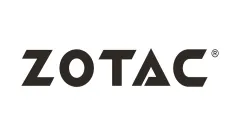As data consumption skyrockets and artificial intelligence drives unprecedented growth, India is witnessing a transformative surge in data centre development. Leading corporate giants such as Tata, Reliance, Adani, and Bharti Airtel are investing billions of dollars to establish cutting-edge, large-scale facilities. These centres are set to power the country’s AI, cloud, and enterprise digital infrastructure for the next decade, positioning India as a global hub for data-driven innovation.
The increasing demand for data storage and computing has created an urgent need for domestic facilities. Currently, India generates nearly 20% of global data but stores only 3% domestically. To address this gap, top conglomerates are rolling out gigawatt-scale projects across multiple states, leveraging cost advantages, renewable energy, and favorable government policies. This investment wave is expected to reshape India’s technology landscape and create opportunities for startups, enterprises, and global hyperscalers.
Corporate leaders are betting heavily on the AI revolution, recognizing that future data requirements will be fueled not only by traditional internet consumption but also by large-scale AI workloads, cloud adoption, and 5G expansion. As firms pivot from traditional asset-light models, India is witnessing the emergence of AI-ready hyper-scale facilities, creating a competitive ecosystem for global and domestic players alike.
Tata and HyperVault AI Data Centres
Tata Consultancy Services (TCS) has taken a bold step by launching HyperVault AI Data Centre Ltd in partnership with private equity firm TPG. The project involves an investment of up to Rs 18,000 crore to develop a 1.2-GW platform, which equals the combined capacity of existing data centres in India. This ambitious project provides enterprises with AI-ready infrastructure, including private cloud solutions and model-as-a-service deployment options, marking a shift from TCS’s traditional approach.
HyperVault’s design allows flexible deployment of GPUs, CPUs, and other critical hardware, offering clients the ability to scale operations rapidly. By combining cutting-edge technology with strong enterprise relationships, TCS aims to dominate the emerging AI and cloud services market while creating long-term value for its customers.
Reliance Industries Expands AI Data Centre Network
Reliance Industries Limited (RIL) is also making significant strides in India’s data centre sector. Already operating a 1-GW AI data centre in Jamnagar, RIL has announced an $11 billion investment to establish another 1-GW facility in Visakhapatnam over the next five years. Partnering with Canada’s Brookfield and the US-based Digital Realty, this project underscores Reliance’s ambition to become a leading provider of AI and cloud infrastructure.
The new facility will enhance India’s onshore capacity for high-performance computing, multi-cloud deployments, and AI workloads, positioning the country as a strategic destination for both domestic and international clients. By leveraging cutting-edge technology and renewable energy sources, RIL is shaping the next-generation data ecosystem in India.
Adani Group’s Strategic Partnerships
The Adani Group is rapidly expanding its footprint in India’s data centre industry, including a $15 billion AI data centre in Visakhapatnam in partnership with Google. This follows prior investments of $5.9 billion in Maharashtra and expansions through its joint venture, AdaniConneX, operating facilities in Chennai, Hyderabad, Mumbai, and Pune. These projects aim to integrate AI infrastructure, cloud services, and high-speed connectivity across key urban hubs.
Adani’s aggressive expansion is aligned with the country’s demand surge, offering hyperscale solutions for enterprise and AI workloads. By combining strategic partnerships and large-scale investments, the group positions itself to capture a significant share of India’s growing data centre market.
Bharti Airtel’s Nxtra Data and Market Presence
Bharti Airtel’s Nxtra Data already holds a strong market presence with a 15% share, serving hyperscalers and enterprises across India. The company’s infrastructure investments ensure scalable capacity to handle increasing data and AI demands. Together with Reliance and AdaniConneX, Airtel is projected to account for 35-40% of India’s total data centre capacity by 2030.
By leveraging strong enterprise networks and sustainable energy solutions, Airtel continues to expand its influence in the competitive data centre sector. The company is strategically positioned to capitalize on India’s accelerating digital transformation.
Industry-Wide Investment and Growth Outlook
Market analysts project that global hyperscalers and Indian conglomerates will invest over $50 billion in India’s data centre sector over the next five to seven years. Domestic capacity is expected to rise from 1 GW today to 8–9 GW by 2030. Crisil estimates Rs 55,000-60,000 crore of capex from FY26–FY28, doubling operational capacity while ensuring steady EBITDA growth for investors.
Key drivers for this expansion include increased AI adoption, enterprise cloud migration, 5G proliferation, and robust domestic demand. With cost-effective energy, abundant power supply, and supportive government incentives, India offers one of the most competitive environments for data centre deployment globally.
AI, Cloud, and Connectivity: Shaping India’s Data Future
India’s data centres are becoming crucial hubs for AI computation, cloud services, and enterprise operations. AI workloads, currently less than 1% of total capacity, are projected to reach 15–20% by 2030. Coupled with an extensive subsea cable network linking major cities and low-cost renewable power, India is emerging as a global data and AI hub.
Government policies, such as electricity duty waivers and stamp duty exemptions, further enhance the attractiveness of data centre investments. The combination of robust infrastructure, growing domestic demand, and favorable policies positions India to lead the global data centre and AI ecosystem in the coming decade.
Conclusion: India’s Strategic Edge in Data Centres
With Tata, Reliance, Adani, and Airtel at the forefront, India is rapidly becoming a global-tier data hub. Strategic investments in AI-ready infrastructure, combined with policy support, power surplus, connectivity, and cost advantages, create a compelling growth story. As the country scales from 1 GW to nearly 9 GW of data centre capacity by 2030, India is set to emerge as a leading destination for enterprise computing, AI workloads, and cloud services worldwide.
Also Read: PM Modi Unveils India’s First Private Rocket Vikram-I























